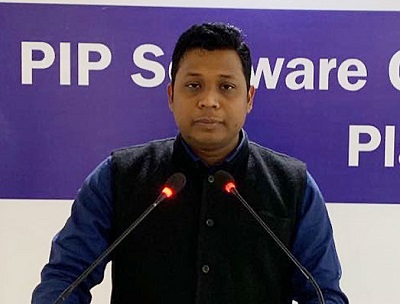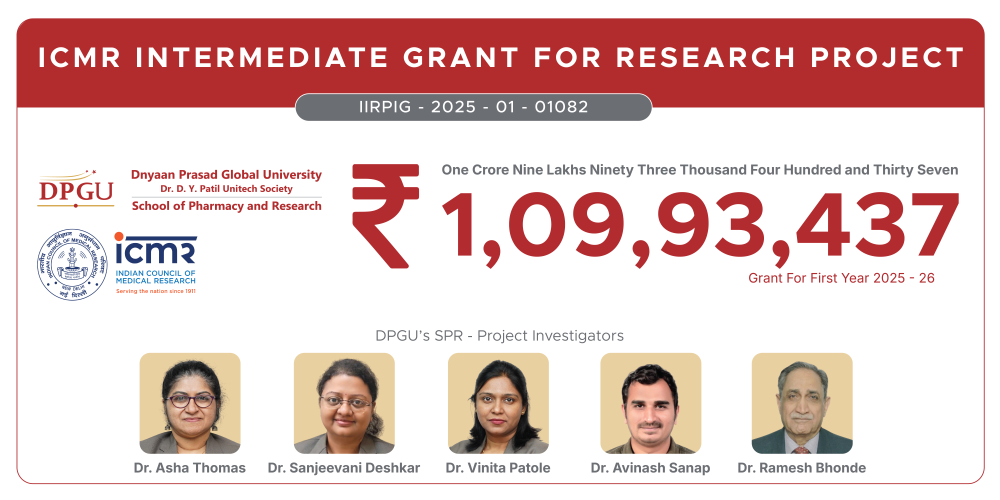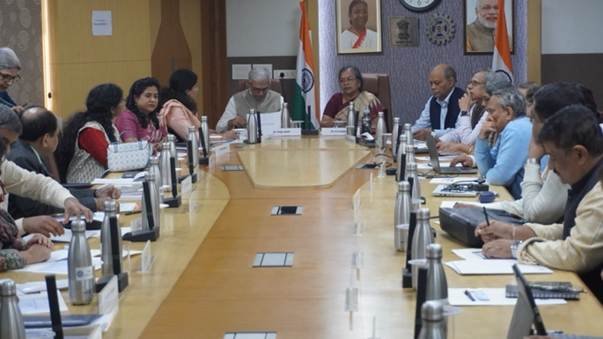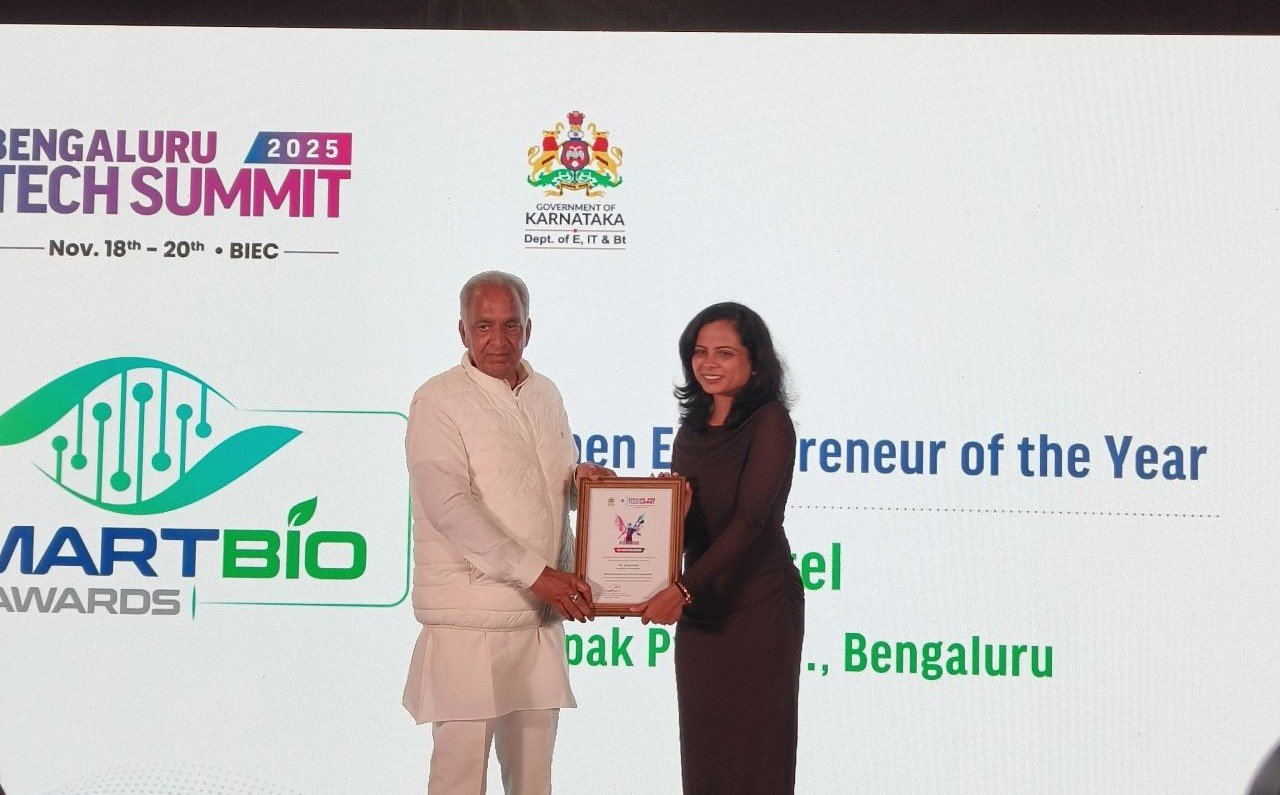Govt of Assam is fully prepared to tide over the COVID-19 crisis
June 07, 2021 | Monday | Views
Assam has been fighting the COVID-19 pandemic with a slew of measures, the recent one being the Community Surveillance Plan Phase III. Dr Dipjyoti Deka, State Programme Manager, National Health Mission, Assam, reveals more about the measures undertaken
Tell us about the Assam Community Surveillance Plan Phase III. How is it going to help bring down the number of positive cases especially in rural areas?
During the first wave of COVID-19 management in 2020, Assam carried out Assam Community Surveillance Plan (ACSP) phase I in May 2020 for one month and based on the positive response of phase I of ACSP. The state decided to carry out ACSP phase II in the name of Assam Targeted Surveillance Plan (ATSP) with the tag name of 'NISCHAYATA' from June to September 2020, where active testing was focussed on hotspot points, like bus terminals, petrol pumps, truck terminal, hotels, police staff, health staff, municipality staff etc. The targeted approach helped us to find out many positive cases and then immediately isolate them and to put them for appropriate treatment.
Under ACSP, a house visit was made in all villages of Assam by ASHA to line list all the potential cases with SARI (Severe Acute Respiratory Infections) / ILI (Influenza-like illness) / fever or any other health issues (malaria, diarrhoea, dengue, JE etc). So, effectively, the approach was 'COVID PLUS'. Based on the potential cases listed by ASHAs, testing was done on the following day by the Medical Team (constituted by the respective Block PHC) and the positive cases were isolated immediately to stop the further spread of the virus. Those who were tested negative or had any other issues were given suggestions/prescriptions based on the nature of complaints by the medical team lead.
Seeing the positive outcome of the last ACSP phases I & II, the state has decided to start the ACSP-Phase III from June 1, 2021, in all the districts of Assam. The ACSP Phase III has been planned to further break the chain of transmission through active community surveillance of chasing the virus.
With the third wave of COVID-19 imminent, how is the state health department going to cope with the pandemic?
Based on the assumption that there will be a third wave of COVID-19, the state government has been discussing this issue and has started planning to deal with the situation, even if it comes. Because it is predicted that children will be the worst sufferers in the third wave, extra importance is given to making the facility ready to manage more paediatric COVID cases.
The Chief Minister of Assam has already taken stock of the situation in a high-level meeting and it has been decided that each of the district hospitals will have paediatric ICU and the number of beds in medical colleges ICU for paediatric management will be increased manifold. Accordingly, the State Child Health Consultant of NHM, Assam has already prepared an action plan and trained district trainers from medical colleges, who in turn will train other identified officials from the health facilities of the district.
Moreover, the ongoing strengthening of the COVID response mechanism will continue with the addition of more facilities to manage COVID cases, more trained HR to deal with COVID-19 patients, uninterrupted supply of drugs and diagnostics, mass community awareness on DOs and DON’Ts of COVID-19. Maximum thrust is given on COVID Appropriate Behaviour (CAB) so that citizens come forward voluntarily for testing, which will help in isolating positive cases early and thus slowing the spread of the virus. So, it is hoped that with this kind of holistic preparation, the state will be able to cope up with the third wave of COVID-19 pandemic.
How many people have been inoculated with vaccines till now? Given the fact that there is a shortage of vaccines, what are the challenges being faced by the department?
Department of Health & Family Welfare, Government of Assam has been giving utmost importance to vaccinating its citizens at the shortest possible time. Vaccination for both the groups (above 45 years and 18-44 years age group) has started in the state. The government of Assam keeps giving daily statements (in social media) of vaccination coverage so that people get the right messages about vaccination. In each district, one officer (at the rank of Additional Deputy Commissioner) has been named as Nodal Officer for vaccination and recently revised SoP has been made public for vaccination drive.
The state has named a few vaccination centres in each district as 'model vaccination centres' to attract more and more beneficiaries for vaccination. There are more than 1800 CVCs ready including private facilities. Each day more than 55,000 people are vaccinated. Free vaccination is provided to targeted beneficiaries at government-run health facilities. The vaccination centres are also being monitored by senior government officials as well as members of the development partners so that the identified gaps can be addressed, and the vaccination programme can be made successful. The state has not faced an acute shortage of vaccine so far, as the state has been getting vaccines from the Government of India and people are also cooperating in getting vaccinated. The vaccination status as of 29.05.2021 is as under:
|
Total Number of Doses administered Vaccinated
( till 29th May 2021 @4:00 PM - Source: CoWIN Portal)
|
40,66,160
|
|
1st Dose :
|
32,39,760
|
|
2nd Dose :
|
8,26,400
|
Rural areas across the state can only be accessed by boats. What were the challenges faced by Asha workers travelling to the remote locations during the lockdown?
Since ASHA works in the same village, where she resides, she did not find many issues during the lockdown in accessing her area to extend healthcare services, largely promotive and preventive. Moreover, as and when she needs fast mobility to ferry needy patients, she immediately gets connected to the Block PHC Authority and 108 referral ambulances are sent in her area to transport the patient to the appropriate health facility for timely care. Other than these, ASHA always maintains a good rapport with the community, so as and when she finds any emergency then community members come forward to help her so that she, in turn, can help the needy person from the community.
Recently a doctor was attacked at one of the covid centres in Hojai. How do you plan to prevent these types of incidents?
The Chief Minister of Assam has taken serious cognizance of the barbaric incident, when on duty doctor at Udali Model Hospital in Hojai (Assam) and directed the Director-General of Police Department to apprehend the culprits and to give exemplary punishment so that such horrifying incidents are not repeated. Moreover, during the pandemic, the way medical and paramedical staff have been working hard in managing the pandemic, such type of unruly behaviour against them can never be accepted and society does not recognise such behaviour. All the 28 culprits have been booked, including three juveniles. The legal procedure has been initiated against them to give justice to the victim. In the meantime, the Chief Minister has visited Guwahati Medical College and Hospital (GMCH) and met the doctor (Dr Seuj Kumar Senapati – the victim) and asked the GMCH Authority to provide him with the best of treatment.
With monsoon round the corner, how do you plan to inoculate babies and carry on with regular vaccine programmes like saying polio, measles etc? How well prepared is the state to tackle malaria and dengue which sees a spurt during the monsoon?
Yes, true, monsoon is round the corner. The state is very much aware of this and for this, the state has focused on strengthening surveillance at villages, tea gardens, forest area habitations. To begin with, the state has decided that while the medical team under Assam Community Surveillance Plan (ACSP) will be in villages, tea gardens, forest area habitations, they will also see all patients with physical discomfort, not restricting to only COVID-19 symptoms. The approach of COVID Plus itself will help in identifying all cases (including seasonal disease like malaria, dengue) and to take appropriate action as deemed fit and proper by the Medical Team lead during the village visit. Moreover, dedicated ICU has been made functional in all the district hospitals and medical colleges for keeping JE patients and if anyone takes admission at a private health facility then the government will pay treatment cost up to Rs 1 lakh for JE treatment. So, the government is fully prepared and committed to deal with any crisis.
Sanjiv Das
(sanjiv.das@mmactiv.com)










